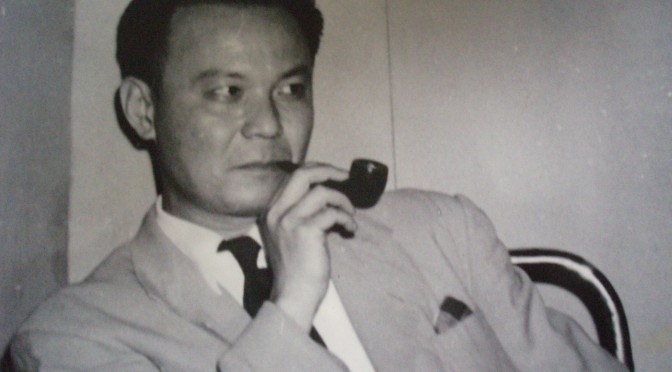Giles Ji Ungpakorn
I have been struggling to find an answer to why South-East Asia has low Covid 19 infections and deaths compared to Western Europe and the USA [See https://bit.ly/2WFX00l ].
These are my preliminary thoughts and guesses on the matter. The possible causes are not necessarily in scientific order of importance.
- The age profile of the populations in South-East is very different to Western Europe, with many more young people and far fewer elderly people in South-East Asia. This would affect mortality rates. Younger people may also catch the virus and only have mild symptoms which are not recorded.
- Under-reporting of Covid 19 deaths? Without wide-spread testing we shall not know how many people caught the virus without becoming sick. However, we can see the death rates. Much of the “unexplained excess death rates” in South-East Asia may well be due to Covid 19. For example in April a Reuters study of data from 34 provinces in Indonesia showed that more than 2,200 people had died from Covid-19-like symptoms that were not reported as such. This indicates the number of victims in Indonesia is likely to be far higher than the official death toll of 895. There has also been under-reporting of Covid-19 deaths in Western Europe, for example in Britain, Italy and Spain. But under-reporting in some South-East Asian countries might be much greater.
- Connectedness of countries to the world system of trade, investment and tourism is likely to be an important issue, since Covid 19 had to travel from China to other countries. According to the World Bank, before the pandemic, Western countries had many more international tourist arrivals than South-East Asia. In 2018 France had 89 million international tourists, followed by USA (80 million), Spain (83 million) and Italy (62 million). This compares to 38 million for Thailand, followed by 26 million for Malaysia, and 16 million for Indonesia. In terms of international flight passenger arrivals in 2019, major airports in the USA had the most. Heathrow airport in London had 81 million, while Charles de Gaulle airport in Paris had 76 million, with Bangkok having 65 million. At the same time many travelers in European countries cross borders by road and rail. Government policies also had an effect. In Britain just 273 out of the 18.1 million people who entered the UK in the three months prior to the coronavirus lockdown were formally quarantined. At least 1,800 private aircraft landed in the UK during lockdown without tracking or screening passengers or crew. So Western countries are more internationally connected than South-East Asian countries. It is interesting to note that the official figures for Singapore and Malaysia are highest for South-East Asia. These two countries have high connectedness to the world economic system. This connectedness issue may also be a factor which helps to explain why Covid 19 figures in Eastern Europe are lower than Western Europe.
- The rate of “Obesity”, which is a high risk factor for serious symptoms and deaths, may be part of the explanation. Obesity in South-East Asia is much lower than in Western countries. Recent figures from the CIA show that obesity as a % of the population is 36% for the USA, 28% for the UK, 24% for Spain, 22% for France and 20% for Italy. The levels of obesity in Thailand are 10%, 7% in Indonesia and 2% in Vietnam.
- The warm and moist climates of South-East Asian countries may be a factor which has limited the spread of the virus, although this is still a debatable point among scientists and health workers. Some research papers from Harvard University and the London School of Hygiene and Tropic Medicine have questioned the belief that warmer climates help to reduce the spread of the virus. Traditional flu does show peaks in winter and troughs in the summer. But some laboratory studies have shown that the corona virus is less effective in warm, moist atmospheres.
- Effective government measures in terms of lock-down and contact tracing can only be attributed to the low level of Covid 19 infection and mortality in Vietnam, where there were draconian rules put in place from early on. The Thai, Indonesian, Malaysian and Cambodian governments had chaotic responses, which potentially might have put millions at risk. Singapore seems to have protected its middle-class citizens while sacrificing migrant workers who were locked up in un-hygienic dormitories.
The Cambodian politician Sam Rainsy has also suggested that immunity to Malaria and some genetic factors might also be responsible for low Covid 19 rates in South-East Asia [See https://bit.ly/3dRzMtW ]. But there is no scientific evidence so far to back this up.
Others have suggested that wide-spread wearing of face masks is an issue, but these masks are of limited efficiency and did not prevent the pandemic in China, where people also wore masks.
Some suggest that the lack of kissing and hand-shakes may be a factor. But same sex people touch each other in other ways in the region, often more so than in the West.
Despite what appear to be low Covid 19 infection rates and deaths in South-East Asia, the economic and social effects of government lock-downs and very weak social welfare support systems are causing a real crisis of poverty for millions of working people and this should not be ignored. This is also a serious issue in many poor countries of Africa and Latin America.
[See problem in Thailand: https://bit.ly/3bGCRvc and https://bit.ly/2Syd7L8 ]

























